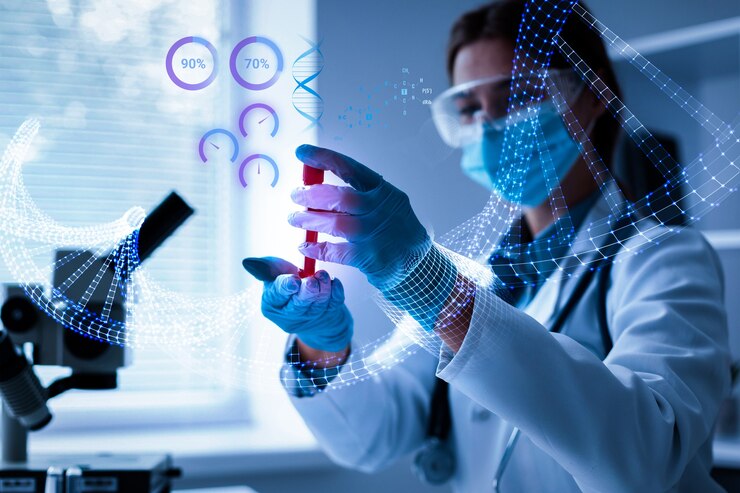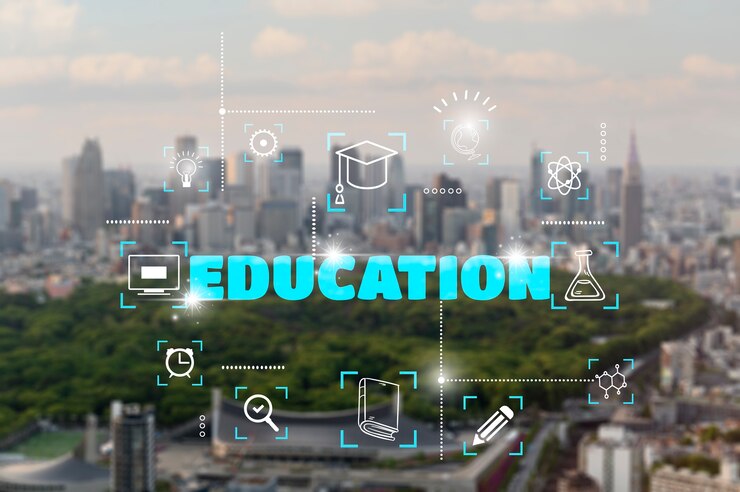In recent years, Artificial Intelligence (AI) has emerged as a powerful tool in healthcare, transforming the industry in ways previously thought impossible. One of the key drivers behind this transformation is AI education.
This article will delve into the profound impact of AI on healthcare, exploring how education plays a pivotal role in realizing its potential. We will discuss the current state of AI in healthcare, its applications, and the need for AI certification at various levels.
So, let’s embark on this journey to understand how AI is revolutionizing the healthcare sector through education.
The Current State of AI in Healthcare
The healthcare industry is brimming with technological advancements. From the advent of X-rays to the development of sophisticated surgical techniques, technology has consistently played a pivotal role in improving patient care. However, AI is poised to take healthcare to an entirely new level, transforming how healthcare professionals work. To stay at the forefront of these innovations, healthcare practitioners can explore resources like online nursing assignment help nursing to gain a deeper understanding of AI’s applications in the medical field.
The Rise of AI in Medical Diagnosis
AI algorithms, particularly deep learning models, have demonstrated exceptional capabilities in medical diagnosis. Machines are now able to analyze medical images, such as X-rays, CT scans, and MRIs, with a level of accuracy that rivals or even surpasses human radiologists. This not only speeds up the diagnostic process but also reduces the likelihood of human error, potentially saving countless lives.
AI-Powered Drug Discovery
Developing new drugs is a highly time-consuming and expensive process, that often takes years and costing billions of dollars. AI is revolutionizing drug discovery by speeding up the identification of potential compounds and predicting their effectiveness. This not only reduces costs but also allows for the development of drugs for rare diseases that may have otherwise been neglected.
Predictive Analytics and Personalized Medicine
AI-driven predictive analytics are enabling healthcare providers to anticipate patient needs and tailor treatments accordingly. This personalized approach to medicine can lead to better outcomes, as treatments are optimized for individual patients based on their individual genetic makeup, lifestyle, and medical history.
Administrative Efficiency
AI is not limited to clinical applications alone. It is also streamlining administrative processes in healthcare institutions. Chatbots and virtual assistants can handle appointment scheduling, billing inquiries, and even answer medical queries, freeing up administrative staff to focus on more complex tasks.
The Role of Education in the AI-Driven Healthcare Revolution

To fully harness the potential of AI in healthcare, education is paramount. The integration of AI into healthcare practices requires professionals who are not only proficient in their respective fields but also well-versed in AI technologies. Here’s how education is playing a crucial role in the AI-driven healthcare revolution:
Fostering Collaboration between Healthcare and AI Experts
Healthcare and AI are traditionally distinct fields with their own specialized knowledge. To bridge this gap, educational programs are emerging that train healthcare professionals in AI and vice versa. For instance, medical schools are incorporating AI courses into their curriculum, ensuring that the next generation of doctors understands how to leverage AI tools effectively.
Upgrading Existing Workforce
The healthcare industry already has a vast workforce, from nurses and physicians to technicians and administrators. To fully integrate AI, ongoing education and training are essential. Workshops, online courses, and certification programs are now available to help healthcare professionals acquire AI skills without disrupting their careers.
Promoting Ethical AI Use
As AI becomes increasingly integrated into healthcare, ethical considerations become paramount. Education plays a vital role in ensuring that AI is used responsibly and ethically. Courses on AI ethics and compliance are essential to train healthcare professionals to make ethical decisions when using AI in patient care.
Nurturing AI Talent
Developing AI solutions for healthcare requires a specialized skill set. Education institutions are responding to the demand by offering dedicated AI programs and degrees. These programs not only teach the technical aspects of AI but also emphasize its practical applications in healthcare.
Applications of AI in Healthcare Education
AI is not just transforming patient care; it is also reshaping how healthcare professionals are trained. Here are some applications of AI in healthcare education:
Personalized Learning
AI-powered educational platforms can adapt to the individual learning styles and needs of students. In healthcare education, this means that aspiring doctors, nurses, or medical technicians can receive tailored instruction and resources that cater to their strengths and weaknesses.
Simulated Medical Procedures
Simulation is a valuable tool in medical education, allowing students to practice medical procedures in a risk-free environment. AI-driven simulators can mimic real-life scenarios, offering students an immersive and realistic learning experience.
Predictive Analytics for Student Success
Educational institutions can use AI to identify struggling students early in their academic journey. Predictive analytics can help educators provide timely support and interventions, ensuring that students have the resources they need to succeed.
The Future of AI Education in Healthcare

As AI continues to advance and its applications in healthcare expand, the future of AI education in healthcare looks promising. Here are some trends and developments to watch for:
Interdisciplinary Programs
AI in healthcare education is evolving beyond traditional silos. Interdisciplinary programs that bring together experts from healthcare, AI, ethics, and data science will become more common, fostering collaboration and innovation.
AI-Powered Learning Assistants
AI-driven virtual assistants will play a more significant role in healthcare education, providing students with on-demand support, answering questions, and assisting with research and coursework.
AI-Enhanced Clinical Decision Support
Healthcare professionals will rely on AI-powered clinical decision support systems to assist with diagnosis and treatment recommendations, making healthcare more efficient and accurate.
Conclusion
AI is revolutionizing the healthcare industry, with its impact extending to every facet of patient care and education. From accurate medical diagnoses to personalized treatments, AI is enhancing the quality of healthcare delivery. Education is the key that unlocks AI’s potential in healthcare, ensuring that professionals are equipped with the knowledge and skills needed to harness this transformative technology responsibly and effectively.
The future of healthcare is undoubtedly intertwined with AI, and education will continue to play a pivotal role in shaping this future. As we move forward, it’s essential to prioritize AI education, fostering collaboration, promoting ethical use, and nurturing the talent needed to drive innovation in the healthcare industry. By doing so, we can truly revolutionize healthcare, making it more accessible, efficient, and patient-centric than ever before.
Read Also:




Leave A Comment